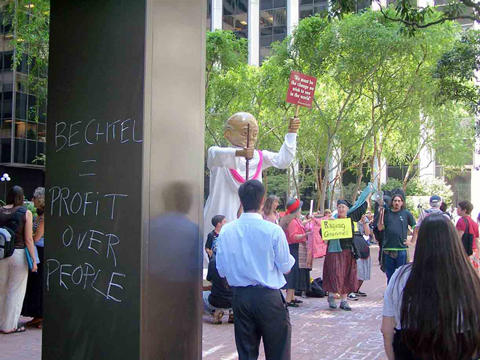Michael Spies
Eight days before the lapse of Iran’s Security Council imposed deadline to suspend all uranium enrichment activities, Argentina reportedly announced its plans to expand its nuclear power program including a return to uranium enrichment. A the first step in a multistage initiative named the “Argentina Nuclear Plan” intended to reinvigorate its nuclear energy sector, Argentina will spend $3.5 billion to finish construction of the Atucha II reactor, and in 2010 to begin construction of a fourth power reactor. Like an increasing number of states, Argentina is looking toward the exploitation of nuclear energy as a mean toward reining in greenhouse gas emissions.
Like Brazil, Argentina was a late-comer to the Nuclear Non-Proliferation Treaty, joining in 1995 ahead of the treaty’s indefinite extension. Also like Brazil, its nuclear history is far from unblemished. Predating the Brazilian program by a number of years, the Argentine nuclear program began in the early 1950s. According to the Carnegie Endowment for International Peace, between 1978 and 1990 the military junta which seized power in 1976 actively sought to construct a plutonium reprocessing plant for which no legitimate non-military use could be externally ascertained.
The long rivalry between Argentina and Brazil and their developing nuclear programs led to what many commentators described as a nascent nuclear arms race. Following the restoration of civilian rule in both countries after the early 1980s, both states undertook regional confidence-building measures, including a bi-lateral verification regime known as the Argentine-Brazilian Accounting and Control Commission (ABACC) in 1991. In the mid-1990s both countries joined the Treaty of Tlateloco, which establishes a nuclear-weapon-free zone in Latin America.
Argentina presently operates two nuclear power reactors, with a combined installed capacity of nearly one gigawatt. This capacity is similar to both Iran and Brazil. Brazil began operating a small industrial scale enrichment plant this year, intended to provide fuel for its civil nuclear program and for naval reactors. Argentina’s nuclear program is under IAEA safeguards, although neither Argentina nor Brazil have signed Additional Protocols with the IAEA, which would give the Agency the authority to inspect for undeclared and clandestine nuclear activities.





